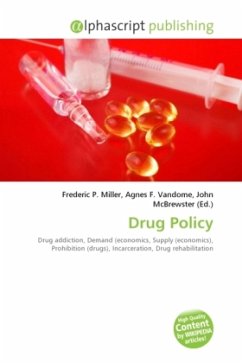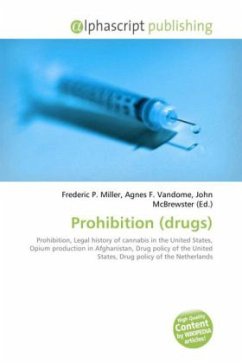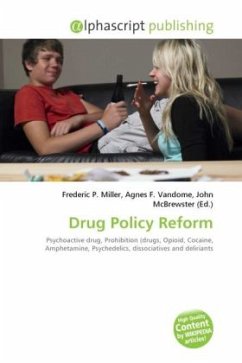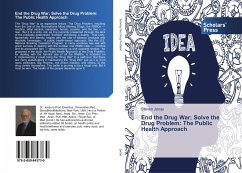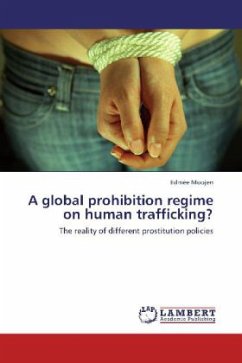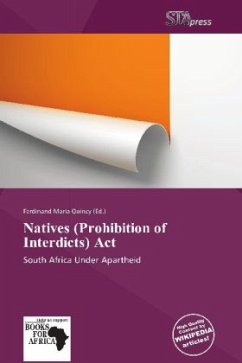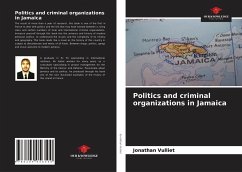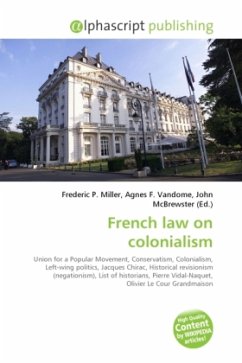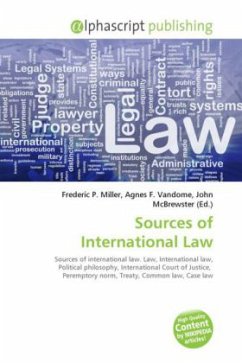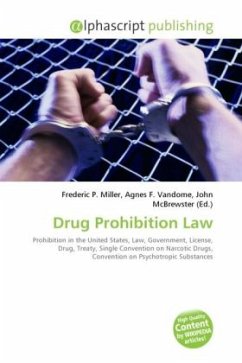
Drug Prohibition Law
Versandkostenfrei!
Versandfertig in 6-10 Tagen
32,99 €
inkl. MwSt.

PAYBACK Punkte
16 °P sammeln!
Drug prohibition law is prohibition-based law by which governments prohibit, except under licence, the production, supply, and possession of many, but not all, substances which are recognised as drugs, and which corresponds to international treaty commitments in the Single Convention on Narcotic Drugs 1961, the Convention on Psychotropic Substances 1971[2], and the United Nations Convention Against Illicit Traffic in Narcotic Drugs and Psychotropic Substances 1988. When produced, supplied or possessed under licence, otherwise prohibited drugs are known as controlled drugs. The United Nations h...
Drug prohibition law is prohibition-based law by which governments prohibit, except under licence, the production, supply, and possession of many, but not all, substances which are recognised as drugs, and which corresponds to international treaty commitments in the Single Convention on Narcotic Drugs 1961, the Convention on Psychotropic Substances 1971[2], and the United Nations Convention Against Illicit Traffic in Narcotic Drugs and Psychotropic Substances 1988. When produced, supplied or possessed under licence, otherwise prohibited drugs are known as controlled drugs. The United Nations has its own drug control programme, as part of the United Nations Office on Drugs and Crime, which was formerly called the United Nations Office for Drug Control and Crime Prevention, and the Commission on Narcotic Drugs is the central drug policy-making body within the United Nations system.



